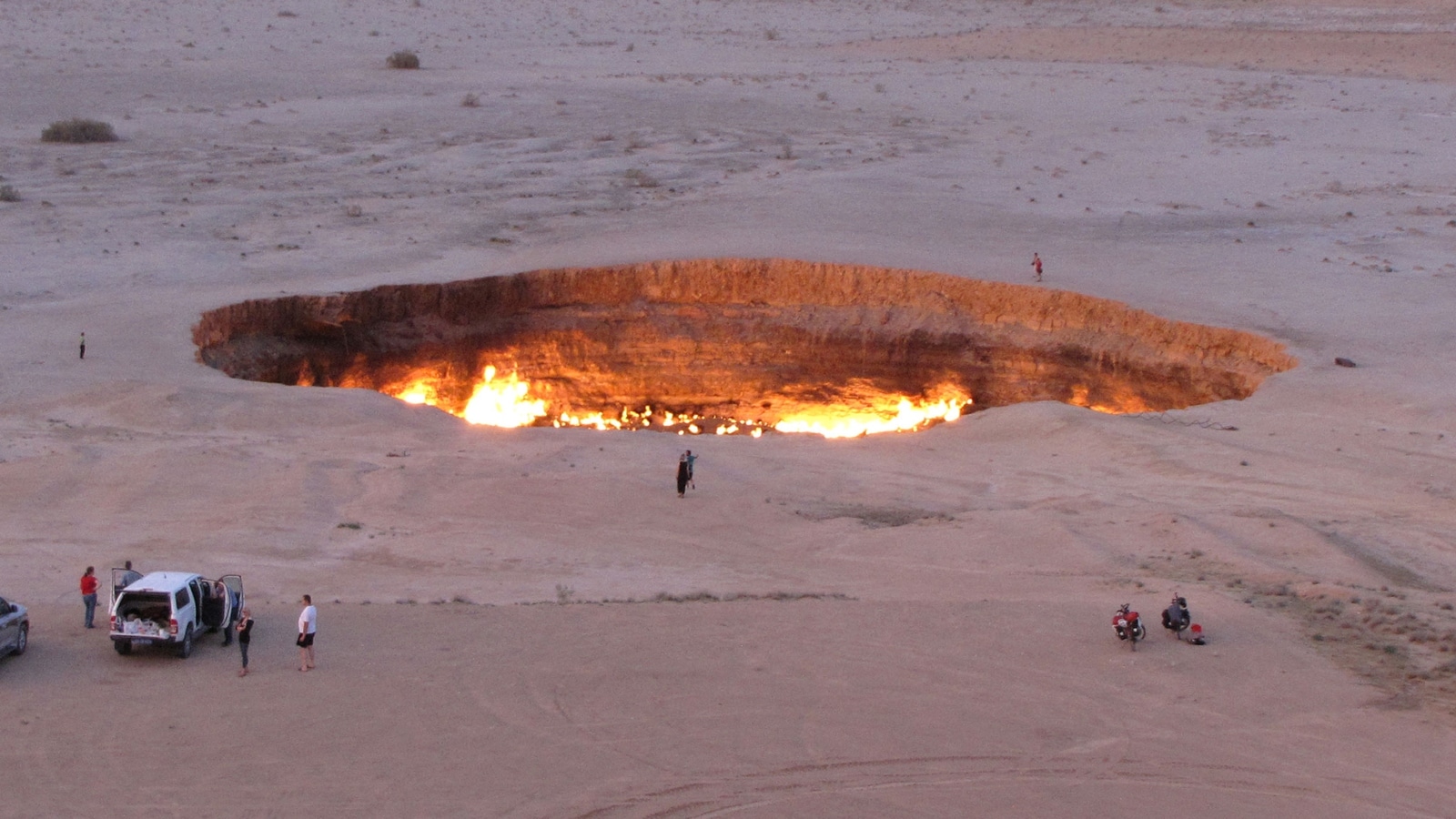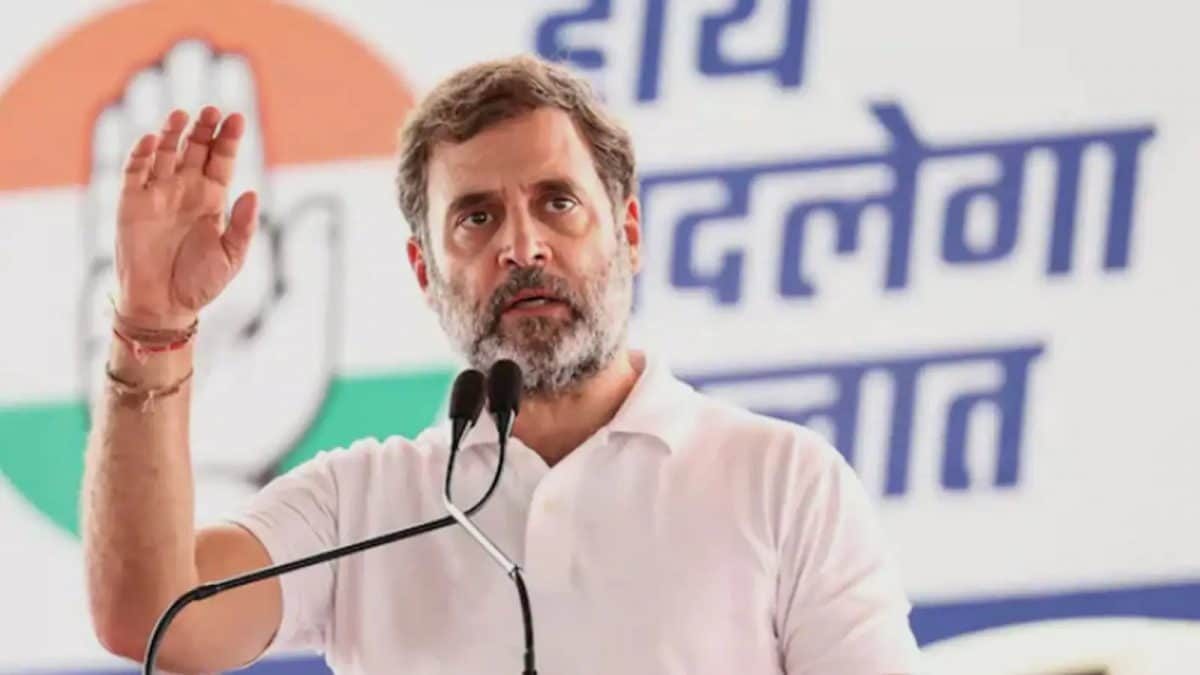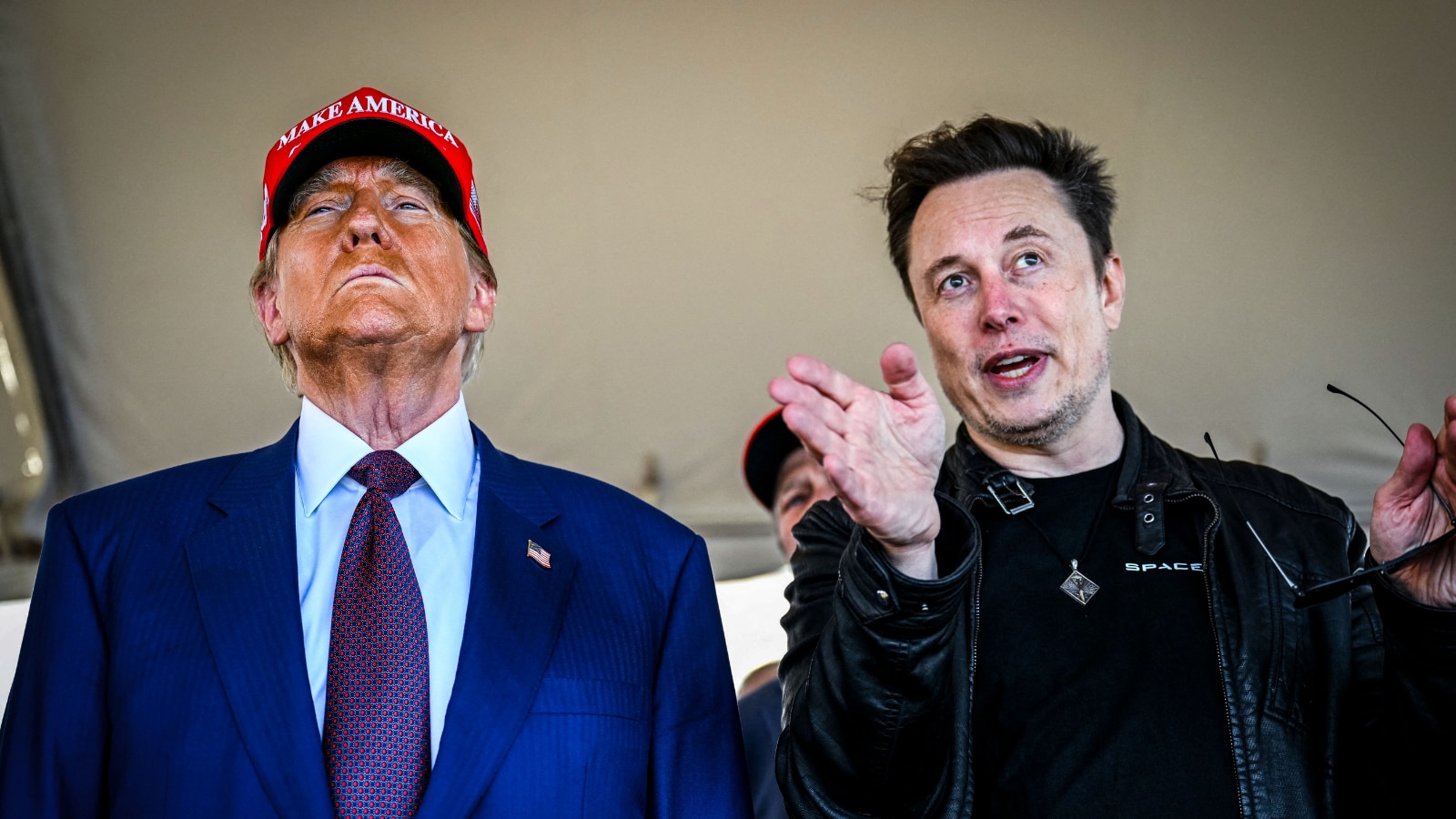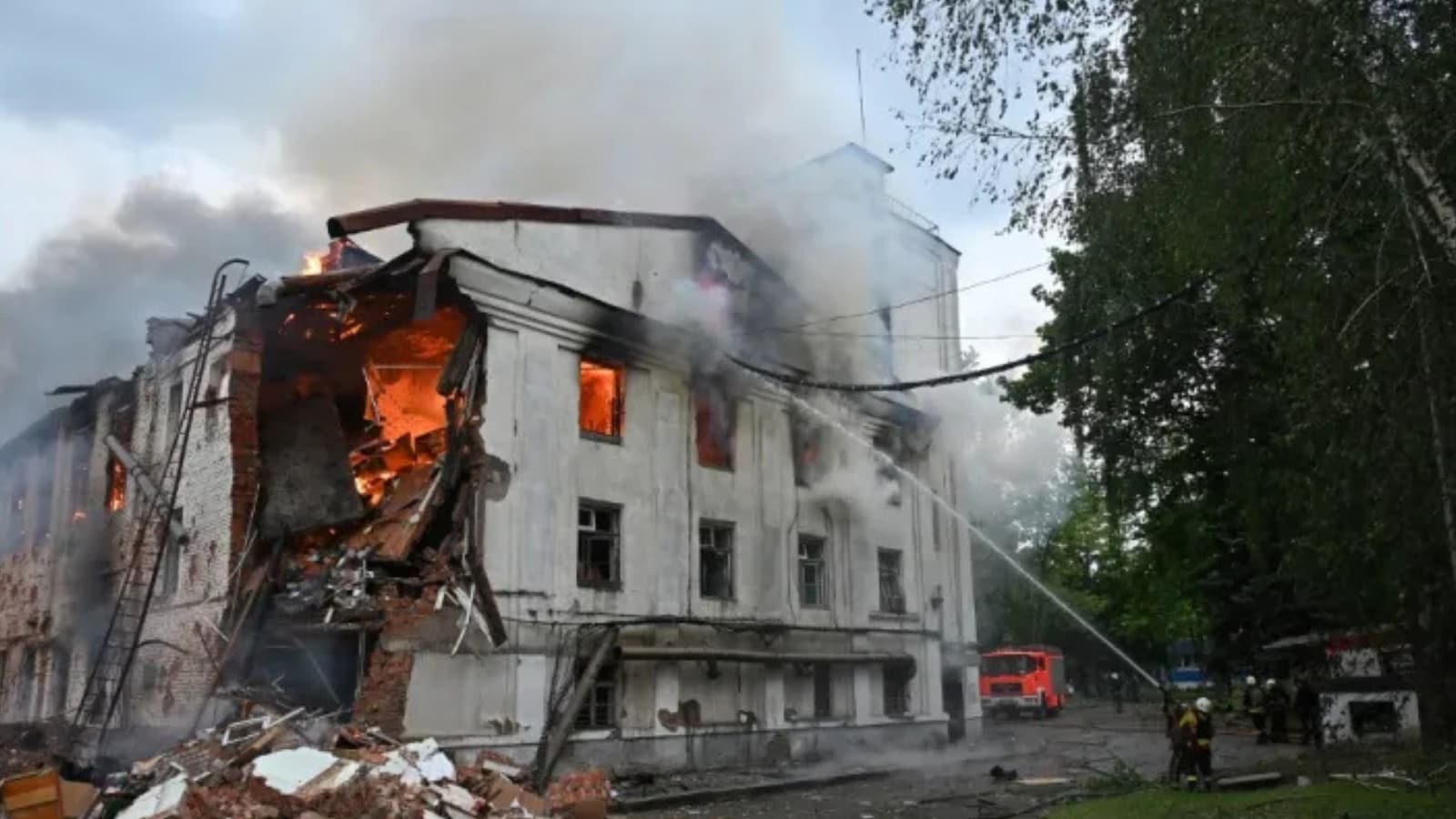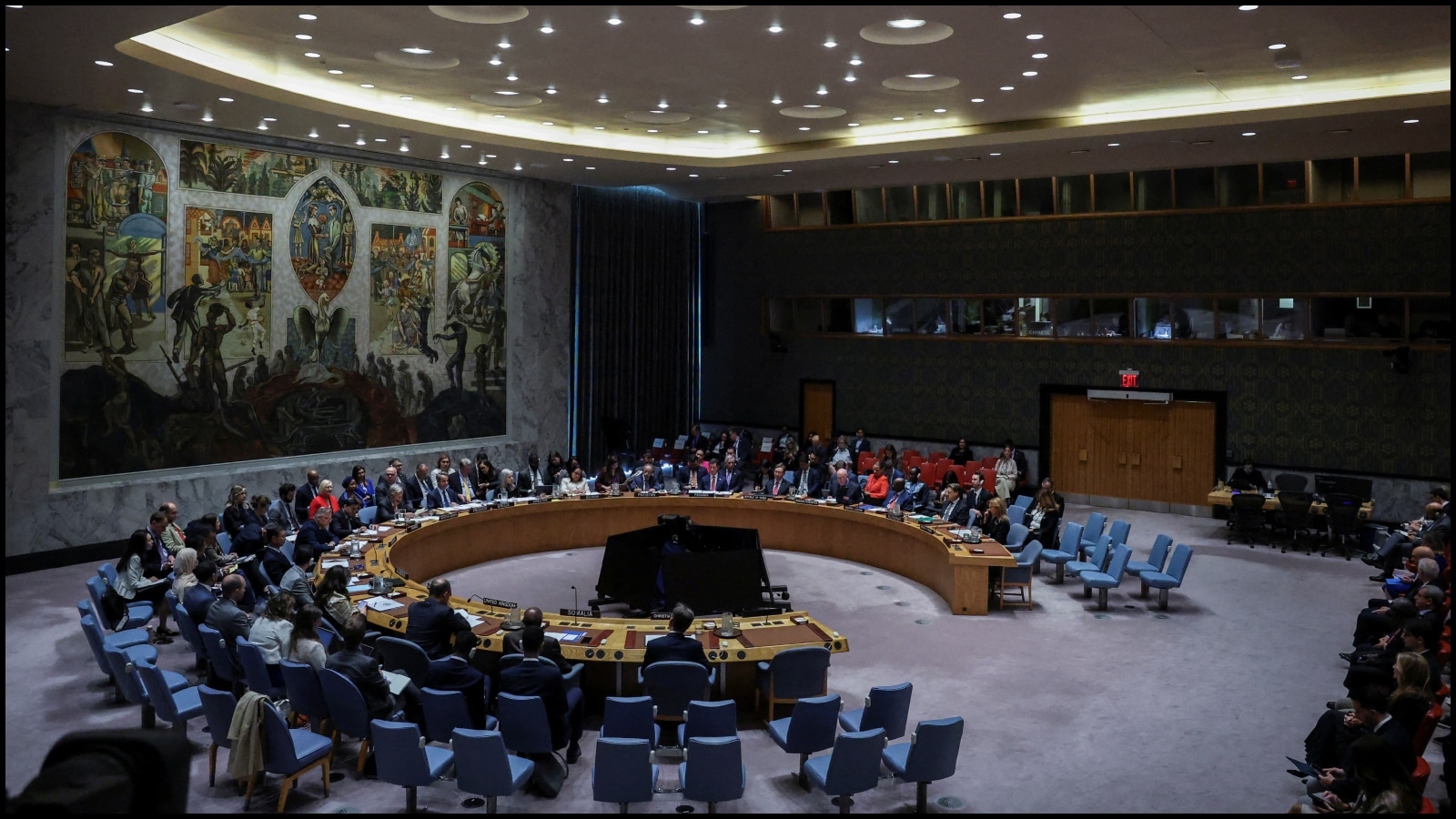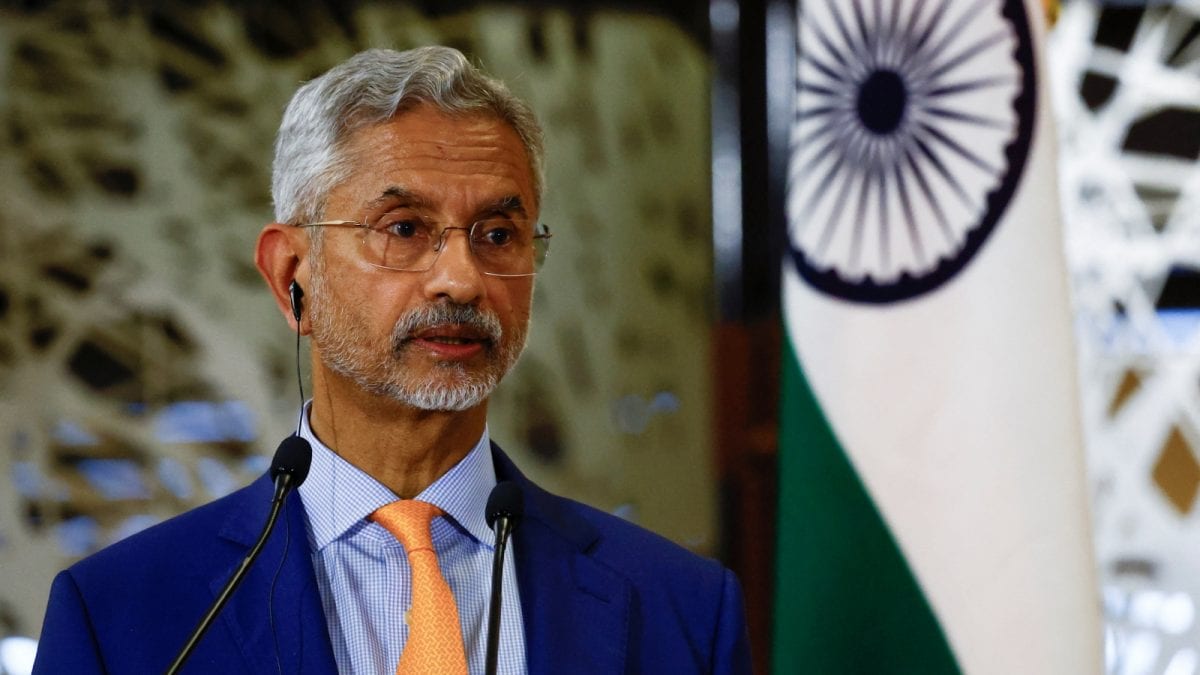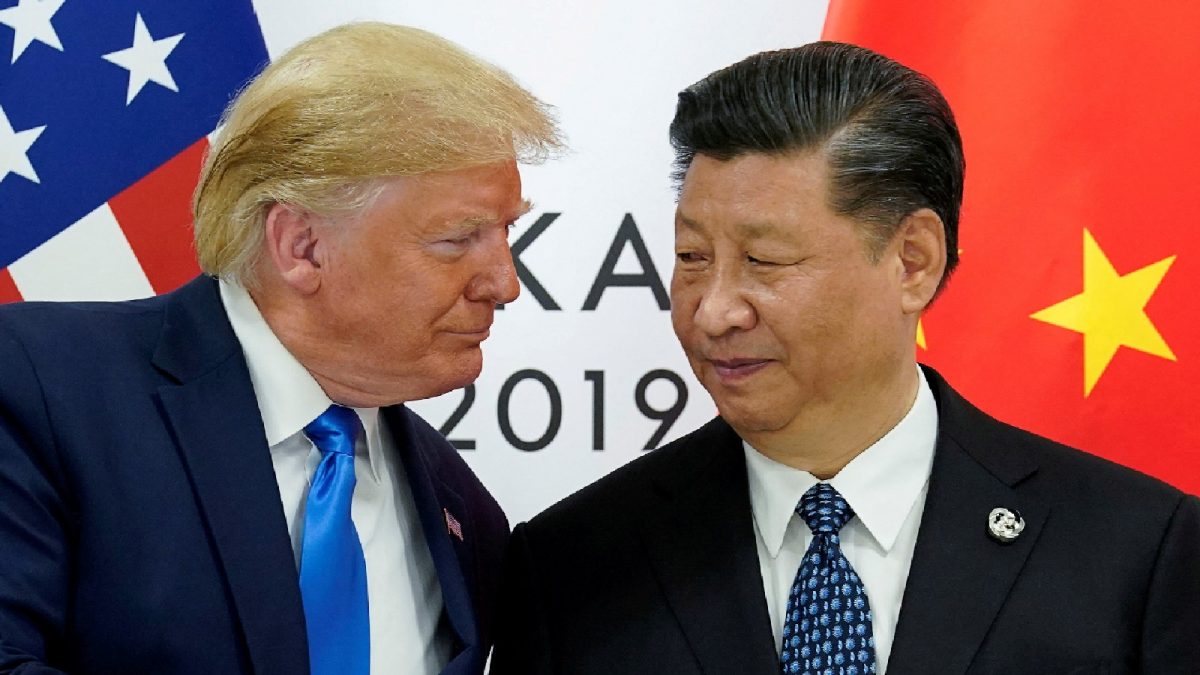Trump: 'We are waiting for China to call'
Just to highlight that in that post on Truth Social regarding his call with South Korea’s acting president, Trump said at the end that he is waiting for China to call to begin trade negotiations. Here’s that part:
China also wants to make a deal, badly, but they don’t know how to get it started. We are waiting for their call. It will happen!
Key events Show key events only Please turn on JavaScript to use this feature
Greer says the administration is seeking more market access in Japan regarding agriculture and talks will also deal with “structural impediments to some industrial goods in terms of standards and regulations”.
Greer says nearly 50 countries, including Argentina, India, Vietnam and Israel, have approached him personally to discuss Trump’s tariffs policy and start negotiations to reduce their tariffs on the US.
US trade representative Jamieson Greer testifies on Donald Trump’s trade and tariff policies before Senate committee
US trade representative Jamieson Greer has been testifying on Donald Trump’s trade and tariff policies before the Senate finance committee.

Greer said Trump imposed tariffs to address the “emergency” of the “massive” US trade deficit. He calls the deficit “an economic and national security emergency”, adding: “We can’t ignore it.”
He cited “higher tariffs imposed by other countries on the US, as well as the effect of [there’s that phrase again] non-tariff measures that promote other countries’ exports and obstruct US exports, and other foreign economic policies favoring over-production and degrading America’s manufacturing capacity”.
He said it was “common sense” to focus on these “indicators” of “non-reciprocal trading conditions”.
As an example he cited trade in shellfish with the EU. “The EU can sell us all the shellfish they want,” he says, “but the EU bans shellfish from 48 states. The result is a trade deficit in shellfish with the EU”
An update from Reuters on the Saudi foreign minister Prince Faisal bin Farhan Al-Saud’s visit to Washington today – the official visit is aimed at planning Donald Trump’s expected trip to the kingdom later this spring, a source close to the Saudi royal court told the news agency.
Prince Faisal would also discuss Gaza and the status of Yemen’s Houthis during meetings with US government officials, the source said.
The trip was scheduled before last week’s US tariffs announcement, the source added.
Reuters reports that Trump plans to visit Saudi Arabia as early as May to sign an investment agreement in what will be the first foreign trip of his second term, with stops also planned in Qatar and the United Arab Emirates.
Trump made Saudi Arabia and Israel the initial stops on his inaugural foreign trip during his first term in 2017.
In a meeting with Israeli prime minister Benjamin Netanyahu at the White House on Monday, Trump once again raised his highly controversial proposal for the US to take control of Gaza. The plan has been globally condemned, including by Saudi Arabia.
In Yemen, which borders Saudi Arabia to the south, the US has launched airstrikes against the Iran-aligned Houthis in an effort to force an end to the group’s attacks on shipping in the Red Sea. The airstrikes are the biggest US military operation in the Middle East since Trump took office in January.
Trump to sign executive orders to boost US coal industry
Donald Trump will sign executive orders on Tuesday to boost the coal industry, a senior White House official and two sources told Reuters, in his latest action that runs counter to global efforts to curb carbon emissions.
Trump campaigned on a promise to increase US energy output and has sought to roll back energy and environmental regulations since taking office in January.
He is scheduled to sign energy related orders at the White House at 3pm ET, the White House said.
The actions will also include efforts to save coal plants that were likely to be retired, said the sources close to the matter, who requested anonymity because they were not authorized to speak publicly.
The orders will direct energy secretary Chris Wright to determine whether coal used in the production of steel is a “critical mineral” the White House official said.
It also directs interior secretary Doug Burgum to acknowledge the end of of a moratorium that paused coal leasing on federal lands and to prioritize coal leasing.

Trump: 'We are waiting for China to call'
Just to highlight that in that post on Truth Social regarding his call with South Korea’s acting president, Trump said at the end that he is waiting for China to call to begin trade negotiations. Here’s that part:
China also wants to make a deal, badly, but they don’t know how to get it started. We are waiting for their call. It will happen!
Wall Street surges 3% as European markets rebound on trade deal hopes

Graeme Wearden
Stocks are surging on Wall Street at the start of trading.
The S&P 500 share index has jumped by 3.3% as investors pile into stocks, up 169 points at 5,232 points.
The Dow Jones Industrial Average, which tracks 30 large US companies, has surged by 1,380 points, or 3.6%, to 39,346 points. The tech-focused Nasdaq index jumped 3.7%.
Shares are rallying after US Treasury secretary Scott Bessent said that he believes the US can reach “some good deals” with trading partners.
This will bring some relief to stock holders, after the sharp plunge in share values on Thursday and Friday last week.
That follows a wild day’s trading yesterday, in which the Dow ended up down 0.9% while the S&P 500 dropped 0.2% for the day. The Nasdaq was 0.1% up.
Traders appear to be hoping that some of the tariffs announced by Donald Trump last week will be negotiated away, as some countries call the White House to agree talks.
However, as Donald Trump just posted, he is still waiting for the phone to ring from Beijing.
Trump touts 'great' call with South Korean acting president on both tariffs and 'non-tariff subjects'
We haven’t yet had South Korea’s acting president Han Duck-soo’s take on the call, but we have heard from Donald Trump, who has said the call was “great” and that the two leaders discussed tariffs, shipbuilding and potential energy deals as well as other subjects not related to trade and tariffs.
“We have the confines and probability of a great DEAL for both countries. Their top TEAM is on a plane heading to the US, and things are looking good,” Trump said in a post on his Truth Social platform, reiterating that South Korea’s trade minister was on his way to the US to meet with his counterpart for negotiations over tariffs.
Trump said they discussed “tariffs, shipbuilding, large-scale purchase of US LNG and South Korea’s joint venture [with Japan] in an Alaska pipeline” (Bloomberg – paywall – has more on that).
Away from trade and returning to this theme of qualms he has with so-called “non-monetary tariffs” – or, as he puts it here, negotiating “subjects that are not covered by trade and tariffs”, Trump said the two leaders also discussed payment for US military protection.
Here’s the full post:
I just had a great call with the Acting President of South Korea. We talked about their tremendous and unsustainable Surplus, Tariffs, Shipbuilding, large scale purchase of U.S. LNG, their joint venture in an Alaska Pipeline, and payment for the big time Military Protection we provide to South Korea. They began these Military payments during my first term, Billions of Dollars, but Sleepy Joe Biden, for reasons unknown, terminated the deal. That was a shocker to all! In any event, we have the confines and probability of a great DEAL for both countries. Their top TEAM is on a plane heading to the U.S., and things are looking good. We are likewise dealing with many other countries, all of whom want to make a deal with the United States. Like with South Korea, we are bringing up other subjects that are not covered by Trade and Tariffs, and getting them negotiated also. “ONE STOP SHOPPING” is a beautiful and efficient process!!! China also wants to make a deal, badly, but they don’t know how to get it started. We are waiting for their call. It will happen! GOD BLESS THE USA.
South Korea's acting president talks with Trump as trade minister travels to US to negotiate 25% tariff
South Korea’s acting president Han Duck-soo has spoken with Donald Trump over the phone, a day before Trump’s 25% tariff is scheduled to kick in.
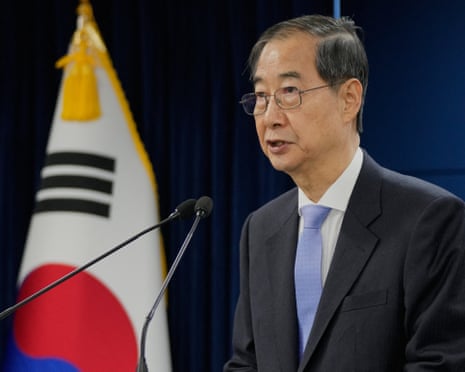
Han vowed an “all-out” response as Asia’s fourth-biggest economy reeled from Thursday’s announcement of 25% tariffs on its exports to the US, with its auto industry expected to be hit particularly hard. He said on Thursday:
As the situation is very grave with the approach of the reality of a global tariff war, the government must pour out all of its capabilities at its disposal to overcome this trade crisis.
It is the first time Trump spoke with any of South Korea’s acting leaders since he took office in January, while now-impeached former president Yoon Suk Yeol, with whom Trump had a phone call the day after his election victory last November, was suspended from duties.
The phone call between Han and Trump also comes as South Korea’s trade minister is traveling to the US to meet with his counterpart for negotiations over tariffs.
Cheong In-kyo, who will meet US trade representative Jamieson Greer during the visit, said on Tuesday that the government has been considering measures to increase imports from the US.
Cheong also said it was good news ahead of his visit that Trump said the door was open for talks over tariffs with nations other than China. (When Trump announced his additional 50% tariff threat on Monday he said all talks with China had been terminated, but later seemed to contradict himself by saying: “We’ll be talking to China.”)
“It is difficult to reduce exports, so shouldn’t we then increase [US] imports? In that regard, we have been reviewing many different packages of measures to resolve the trade balance problem,” Cheong said, before flying to Washington.
He noted that the government had had internal discussions about increasing LNG imports from the US.
Cheong added he will dispute Washington’s calculation of its 25% tariff on South Korea, which he called “problematic” given the two countries’ existing free trade pact.
Trump also announced a 46% duty for Vietnam, where major South Korean conglomerates like Samsung and LG manufacture products. That will deal a “huge blow” to South Korean exporters with production bases there, finance minister Choi Sang-mok said on Tuesday.
Saudi Arabia’s foreign minister Prince Faisal bin Farhan Al-Saud landed in the United States on Tuesday, an official source told Reuters.
He was part of the Saudi delegation that hosted and facilitated talks between the US and Russia in Riyadh in February. We’ll bring you more on his visit as we get it.
Homeland security secretary to waive federal environmental laws for California border wall
Homeland security secretary Kristi Noem has issued a federal notice that she is waiving a slew of environmental and historical preservation laws to facilitate the construction of a barrier wall and roads in the San Diego area, citing illegal border crossings and drug trafficking, reports Law360.
In a notice of determination to be published on Tuesday in the Federal Register, Noem cited the department’s mission to secure US borders and prevent illegal entry into the country as she announced that laws including the Environmental Policy Act, the Endangered Species Act, the Clean Water Act and the Native American Graves Protection and Repatriation Act will be waived to accommodate the construction work.
It mirror’s Department of Homeland Security policy during the first Trump administration that waived environmental laws and other regulations to “ensure the expeditious construction of barriers and roads” near the US-Mexico border south of San Diego “to deter illegal crossings in areas of high illegal entry into the United States”. Then, as now, the move stemmed from a Donald Trump executive order to move forward with building his border wall.
Trump’s 20 January “Securing Our Borders” executive order was mentioned in the notice, as was a congressional mandate in the Secure Fence Act of 2006, both of which authorize the DHS secretary to maintain operational control of the international land border.
Congress in the Secure Fence Act defines “operational control” as the prevention of all unlawful entries into the United States, including entries by terrorists and other unlawful aliens, as well as the illegal introduction of narcotics and other contraband into the country, Noem’s notice said.
Trump’s order has directed Noem to take all appropriate action “to deploy and construct physical barriers to ensure complete operational control of the southern border of the United States”, according to Noem.
She said the US border patrol San Diego sector is an area of high illegal entry of people and narcotics.
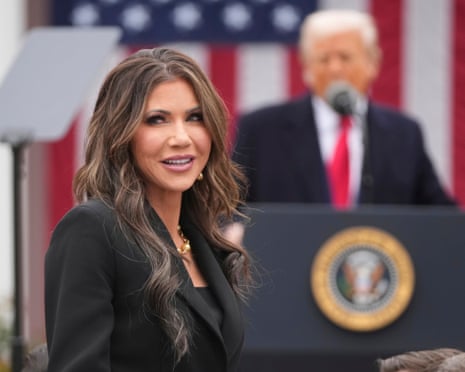
'Everything is on the table,' says Scott Bessent on negotiations around EU 'non-tariff barriers'
“Everything is on the table,” Bessent said when asked whether the European Union needed to lower non-tariff barriers including value-added taxes (VAT).
Everything is on the table. The academic literature shows that it’s actually the non-tariff barriers which are harder, both harder to quantify and … they’re more insidious because they’re hidden, they’re obfuscated.
His reference to “non-tariff barriers” mirrors Donald Trump’s comments from the Oval Office yesterday about his qualms with “non-monetary tariffs” regarding the EU, but he was less vague than Bessent, suggesting that EU standards, rules and regulations were “non-monetary barriers” for US companies trying to trade with the bloc.
“It’s not only tariffs, it’s non-monetary tariffs. It’s tariffs where they put things on that make it impossible for you to sell a car. It’s not a money thing. They make it so difficult – the standards and the tests,” Trump said.
“So they come up with rules and regulations that are just designed for one reason: that you can’t sell your product in those countries and we’re not going to let that happen. Those are called non-monetary barriers,” he said.
China tariff escalation is 'a big mistake', says US treasury secretary Scott Bessent after China rejects Trump's threats
US treasury secretary Scott Bessent has been on the airwaves this morning, telling CNBC that “China’s escalation is a big mistake” and insisting that the US has the upper hand in the trade war brewing between Washington and Beijing.
I think it was a big mistake, this Chinese escalation. We are the deficit country. So what do we lose by the Chinese raising tariffs on us? We export one fifth to them of what they export to us. So that is a losing hand for them.
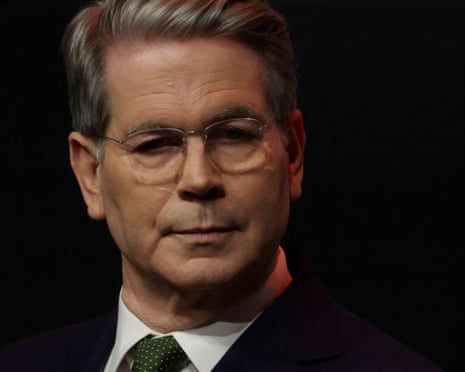
Yesterday Donald Trump threatened China with an additional 50% tariff (on top of the 20% and 34% he previously announced) if it did not withdraw its retaliatory levies – due to take effect tomorrow.
Bessent’s language echoes that of China’s commerce ministry, which last night rejected Trump’s threats as a “mistake on top of a mistake” and accused the US of “blackmail”. It vowed to “resolutely take countermeasures”, adding:
China will fight to the end if the US side is bent on going down the wrong path.
Bessent also claimed that US tariff negotiations are the result of calls from other countries and not sliding financial markets.
Related: Wall Street traders on Trump tariffs: ‘Without doubt, we’re hitting a recession’
About 70 countries have reached out to the White House to begin talks, Bessent said, adding that Trump will be personally involved in trade negotiations.
You can watch the full interview here.
President Donald Trump will sign executive orders on Tuesday aimed at boosting the nation’s coal industry, sources familiar with the matter told Reuters.
Trump, who campaigned on a promise to increase US energy production and has sought to roll back a wide range of energy and environmental regulations since taking office 20 January, is scheduled to sign energy-related orders at the White House at 3pm, the White House said.
Trump plans to sign several executive orders directing the Interior and Energy Departments to take actions to support the industry, according to a source briefed on the details of the event. Both sources requested anonymity because they were not authorized to speak publicly.
The actions will also include efforts to save coal plants at risk of retirement, the source said.

 1 month ago
1 month ago
